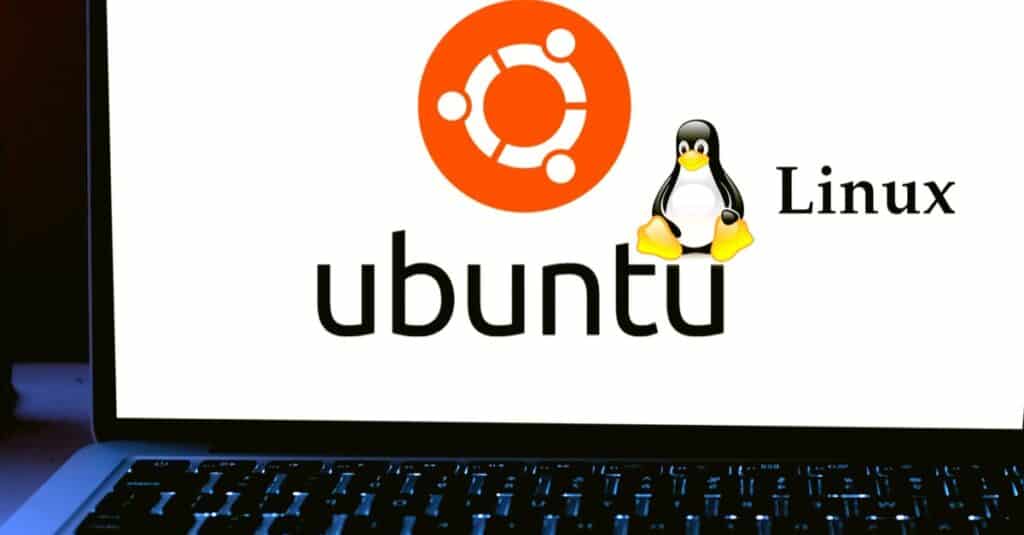Linus Benedict Torvalds is a Finnish-American software engineer. He is best known for being the creator of the Linux Operating System. He was born in Helsinki, Finland, on the 28th of December 1969. Though Finnish by birth, he later became a naturalized American citizen.
Linus Torvalds has made significant contributions to computing through the creation of the Linux kernel and, later, the development of the Git control system. His creation of Linux transformed computing and software development through its open-source, collaborative approach and has become one of the largest free software projects in the world. Linus’ achievements have been recognized with many international awards in his field, including the 2014 IEEE Computer Society Computer Pioneer Award and induction into the Internet Society’s Global INET Internet Hall of Fame in 2012.
Quick Facts
- Full Name
- Linus Benedict Torvalds
- Birth
- December 28, 1969
- Net Worth
- $50 million
- Awards
- IEEE Masaru Ibuka Consumer Electronics Award (2018)
- IEEE Computer Pioneer Award (2014)
- Internet Hall of Fame (2012)
- Millennium Technology Prize (2012)
- C&C Prize by the NEC Corporation (2010)
- Hall of Fellows of the Computer History Museum (2008)
- The Vollum Award from Reed College (2005)
- The Takeda Award for Social/Economic Well-Being (2001)
- The Lovelace Medal – British Computer Society (2000)
- EFF Pioneer Award (1998)
- Honorary Doctorate Helsinki University (2000)
- Honorary Doctorate Stockholm University (1999)
- Children
- Three
- Nationality
- Finish (birth), American (naturalized)
- Place of Birth
- Helsinki, Finland
- Fields of Expertise
- Software Engineering, Operating System Development, BASIC, Assembly language, C, C++
- Institutions
- Helsinki University, The Linux Foundation, Linux Mark Institute, Stockholm University
- Contributions
- The Linux kernel, The Linux Foundation, Git ,Subsurface
Early life
Linus Torvalds was born to Finnish journalists and 1960s radicals Anna and Nils Torvalds in Helsinki, Finland, in 1969. His mother translated for Finnish newspapers and produced graphics, while his father, a Communist, was a radio journalist. His father, Nils, is the grandson of Leo Törnqvistand, a Finnish statistician, and the poet Ole Torvalds.
Many people think that Linus Torvalds’ parents named him after the Peanuts cartoon character Linus Van Peltz. Linus himself agrees, but he’s actually named after the Nobel Prize-winning American chemist Linus Pauling.
Linus’ parents divorced when he was young, and his mother and grandparents brought him up. His childhood was otherwise unremarkable. His family ensured that he was literate and read widely from an early age. Linus’ wider family came from a Swedish-speaking minority in Finland, numbering 300,000 people.
Linus showed early promise in computing, owning a Commodore VIC-20 at age 11. He then started to write programs for it in BASIC, even directly accessing the 6502 CPU in machine code.
Career
The University of Helsinki

Linus Torvalds developed his interest in computing by studying Computer Science at the University of Helsinki, the alma mater of his parents. His studies commenced in 1988, and he graduated with a Master’s in Computer Science in 1996. He worked as part of the Computer Science department’s NODES research group that continues to undertake research on distributed and networked systems and applications.
As part of his studies, Torvalds learned about and worked with the Unix OS, whose multi-user, multitasking attributes influenced his development of Linux. His Master’s thesis was titled “Linux: A Portable Operating System.”
Finnish military service
The completion of mandatory military service interrupted Torvald’s studies. In 1989 Torvalds joined the Finnish Navy Nyland Brigade and completed an 11-month officer training program serving as an artillery observer. He achieved the rank of second lieutenant. He went back to university in 1990.
The development of Linux
Exposure to the powerful processors and stable Unix operating system of Helsinki University computers inspired Linus Torvalds to take the leap of developing his own operating system. During the later part of his studies, he got a PC with a 33MHz Intel 386 processor and 4MB of memory, a huge amount at the time. Though the capabilities of the computer impressed him, he found the MS-DOS operating system disappointing.
He started developing the operating system that became Linux because he could not get a copy of the Unix OS for his computer to replace MS-DOS. Torvalds wanted an OS that could take full advantage of the 386 processor. He tried to use a copy of Minix he procured through academic contacts. This also did not meet his needs as it was not fully open-source.
Creating a new operating system from scratch
Linus Torvalds decided to write his own operating system for his computer. This was a massive undertaking but it made a massive and edifying contribution to contemporary computing. The operating system was based on Unix and Minix, but development work was so involved that he took time off his academic studies to work on Linux full-time. By the 25th of August 1991, he had completed an initial version of the OS, which he shared with the Minix newsgroup.
By September 1991, Torvalds had completed the 0.01 version of the Linux operating system. The first official version, 0.02, was released a month later. The OS could run the text-only user interface for Unix-like systems called the bash shell and the GNU C Compiler. It was at this point that he shared the OS as a collaborative venture, messaging other developers via Minix.
Why Linux?

Torvalds used the name Linux as a contraction of Linus’ Minix. This was the working name of the operating system. Linus Torvalds did not intend Linux to be the long-term name of the OS.
His friend Ari Lemmke, an FTP service administrator, encouraged him to share his source code more widely so that other programmers could study and refine it. Ari created a directory for the OS on his FTP server called “Linux” rather than the name FreaX that Torvalds had intended, and the name clearly stuck.
100% open-source
Linus Torvalds was initially going to release Linux under a restrictive license but points to his decision to release Linux under the GPL (GNU General Public License) as one of his best decisions. Linux quickly became one of the world’s most popular free software licenses, allowing developers to study, use, modify, extend, and redistribute the software as long as they made their modifications and updates freely available. This massively accelerated Linux while Torvalds remained focused on the kernel.
Transmeta Corporation
In 1997 Linus Torvalds moved to the United States and worked for Transmeta Corporation. His role involved developing commercial software to facilitate OS-to-OS communication. Transmeta Corporation also provided him with time to work on Linux alongside this role. He chose this role as he wanted to avoid working for a Linux-associated company, despite the job being part-funded by Microsoft co-founder Paul Allen.
Corporate relationships
As Linux became an increasingly popular alternative to Linux, leading software companies began to support and develop software packages for the OS. Red Hat and VA Software became leading developers of Linux software, rewarding Torvalds with stock options. When both companies went public, Torvalds became a multi-millionaire.
By the late 1990s, Microsoft’s major competitors paid attention to Linux and threw their weight behind it. It was soon known as an inexpensive alternative to MS Windows. Companies like Oracle, Intel, Netscape, Corel, and IBM financially supported Linux development and made their hardware and software Linux-compatible. The Apache web server, originally written for Linux, led to many companies switching to the operating system.
What Did Linus Torvalds Invent?
Linus Torvalds developed several pieces of software, but none have eclipsed the success of Linux.
The Linux kernel
Linus Torvalds is the creator of the Linux kernel, the core of the Linux operating system. It is named after the center of a seed. The kernel is an essential interface between the hardware of a computer and the software programs that run on it. Applications interact with the kernel via a system call interface (SCI). The kernel controls both layers and efficiently manages the computing resources. When operating normally, it should be imperceptible to the user, occupying its own space in the system known as “kernel space,” while areas the user accesses are part of the “user space.”
On a computer, the Linux kernel performs four functions:
- The kernel manages the system memory, keeping track of available memory and storage locations.
- The Linux kernel manages the use of the central processing unit (CPU). It controls which processes use the CPU and for how long.
- The Linux kernel also operates as a device driver for key hardware processes.
- The kernel also manages service requests from various processes.
Git
Linus Torvalds is also the original author of Git, another open-source software, this time for distributed version control. It was released in 2005.
Torvalds originally developed git to track changes to the Linux kernel, but it is now widely adopted by software developers and engineers who work collaboratively.
Developers use Git for developing authoritative source code with contributions from multiple authors. It can support numerous workflows across distributed systems and platforms.
Subsurface
In 2011, Linus Torvalds developed a multi-platform open-source software for diving called Subsurface. Divers use Subsurface for recreational, professional, and free-diving. Divers can run Subsurface on Windows, Mac, and Linux, and it is compatible with commercial dive log software that includes MacDive, Suunto DM4, and JDiveLog.
Subsurface can plan and track dives with data feeds that include GPS coordinates, equipment logs, and diver characteristics.
Linus Torvalds: Marriage, Divorce, Children, and Personal Life
Net Worth
Linus Torvalds’ net worth is believed to be approximately $50 million. This is mainly from the shares he received from Red Hat and other Linux-affiliated companies that went public.
Torvalds also earns a salary of approximately $1.5 million per year from his leadership of The Linux Foundation. The Foundation has an operating budget of over $50 million for the development and updating of the Linux operating system.
Marriage
Linus Torvalds married his wife Tove (née Monni) in 1997. She is also Finnish and a six-time national karate champion. The couple met when Linus was teaching a computer laboratory class at Helsinki University; she emailed him to ask for a date. The rest is history and includes the happy couple welcoming three daughters who are now in their early to mid-twenties.
Tragedy
Thankfully, Linus Torvalds has not encountered any widely known personal tragedy.
Linus Torvalds: Awards and Achievements
Linus Torvalds has received numerous accolades that reflect the significance of his contribution to computing and the internet. He has even had a moon (2003) and an asteroid (1996) named after him! Here is a list of his notable awards:
Honorary doctorates
Linus Torvalds is the recipient of doctorates from the University of Helsinki (2000) and the University of Stockholm (1999)
Awards from the Institute of Electronic and Electrical Engineers (IEEE)
Torvalds has received two awards from the IEEE. In 2014 he received the IEEE Computer Pioneer Award, and later, in 2018 he received the Masaru Ibuka Consumer Electronics Award
Other awards
The international accolades Linus Torvalds has received include:
- The Internet Hall of Fame (2012)
- Millennium Technology Prize (2012)
- C&C Prize by the NEC Corporation (2010)
- The Vollum Award from Reed College (2005)
- The Takeda Award for Social/Economic Well-Being (2001)
- The Lovelace Medal – British Computer Society (2000)
- EFF Pioneer Award (1998)
Linus Torvalds: Published Works and Books
Linus Torvalds has been a co-author of two books:
The Hacker Ethic
Linus Torvalds co-authored The Hacker Ethic with Pekka Himanen and Manuel Castells in 2001. This treatise compares the ethics and values of Western capitalism with the moral code of hackers to challenge readers on the direction of the Information Age. Linus Torvalds contributed to the introduction.
Just For Fun – The Story of an Accidental Revolutionary
Linus Torvalds is the co-author of Just For Fun – The Story of an Accidental Revolutionary with David Diamond. The book was published in 2002. This lighthearted autobiography charts Torvalds’ rise from a nerdy Helsinki techie to the creator of a groundbreaking operating system. The book offers fans an opportunity to gain insight into Linus’ “quirky mind” and his revolutionary perspective and values.
Linus Torvalds Quotes
Here are some popular Linus Torvalds quotes taken from his books:
“Only wimps use tape backup. REAL men just upload their important stuff on ftp and let the rest of the world mirror it.”
Just For Fun – Linus Torvalds
“I am not a visionary. I’m an engineer. I’m happy with the people who are wandering around looking at the stars but I am looking at the ground and I want to fix the pothole before I fall in.”
Just For Fun – Linus Torvalds
Don’t ever make the mistake [of thinking] that you can design something better than what you get from ruthless massively parallel trial-and-error with a feedback cycle. That’s giving your intelligence much too much credit.”
Just For Fun – Linus Torvalds
“I did learn fairly early that the best and most effective way to lead is by letting people do things because they want to do them, not because you want them to. The best leaders also know when they are wrong and are capable of pulling themselves out. And the best leaders enable others to make decisions for them.
Let me rephrase that. Much of Linux’s success can be attributed to my own personality flaws: 1) I’m lazy; and 2) I like to get credit for the work of others.”
Just For Fun – Linus Torvalds
The image featured at the top of this post is ©Linuxmag.com, December 2002, CC BY-SA 3.0, via Wikimedia Commons.

